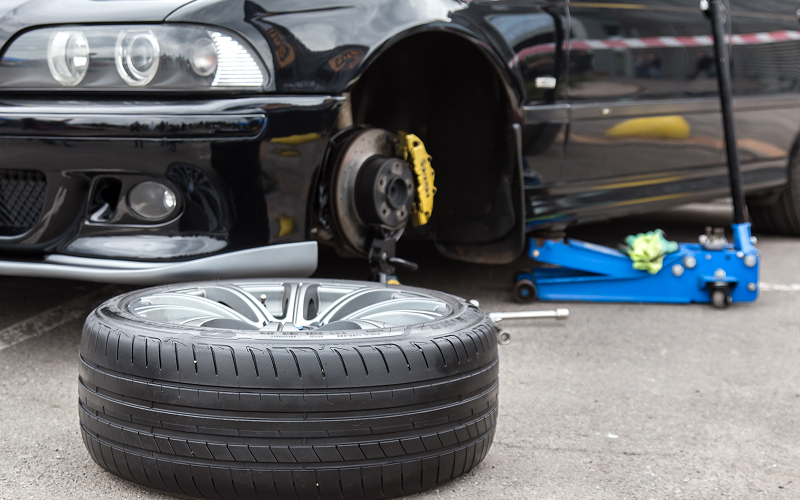You’ve got your rental car, the tank is full, and your Spotify playlist is queued. But after a few weeks, a question rolls in: Are you supposed to rotate the tyres? If you’re on a monthly car lease, the answer depends on how far you’re driving, what’s in your contract, and how hands-on you want to be.
Most renters assume maintenance is the company’s job, and often, it is. But not all rentals are treated equally. While a daily or weekly booking rarely raises this question, longer options like car leasing for 6 months fall into a different category.
Why Tyre Rotation Matters
Tyre rotation is the process of moving tyres from one position to another to ensure even wear. Front tyres wear down faster than rear ones because of steering and weight distribution. Rotating them every few thousand kilometres helps improve safety, fuel economy, and tyre lifespan.
For someone driving their own car, this is standard maintenance. But if your ride is on loan for a month or longer, does this become your problem?
What Most Rental Agreements Say
In most monthly car lease arrangements, rental companies handle major maintenance, including tyre checks and replacements. If you’re only clocking in 1,000 to 1,500 kilometres during your lease, rotation likely isn’t needed within that time frame. The tyres will be just fine for typical city driving.
However, if your month includes regular cross-island travel or frequent long trips, tyre wear adds up quicker. Some contracts state that the driver is responsible for basic checks, such as maintaining air pressure or reporting abnormal wear. That’s where communication counts.
Responsibility vs Reality
Rental providers do not usually expect you to jack up the car and rotate tyres in your car park. But they do expect care. If you notice uneven wear, strange handling, or a noisy ride, flag it. You may be asked to bring the car in for servicing. It’s a shared effort.
During car leasing for 6 months, however, tyre rotation may be scheduled as part of routine maintenance. These leases mimic ownership more closely, and you might be asked to drop the vehicle off for periodic checks. Still, the physical task of rotation remains with the service team, not you.
Keeping an Eye on the Rubber
Even if you’re not expected to rotate the tyres yourself, it’s still good sense to check them. Look for uneven patterns, bald patches, or odd vibrations. It’s not about being a mechanic, just a mindful driver. Tyres affect braking, fuel efficiency, and the general driving feel.
If something looks off or feels different, say something. Most rental companies would rather deal with a small issue early than a blown tyre on the expressway. A quick inspection can prevent delays, costs, or even accidents.
Driving Habits Make a Difference
A big part of tyre condition comes down to how you drive. Hard braking, fast cornering, and sudden stops wear out tyres faster. If your monthly car lease includes a mix of stop-and-go traffic, long hauls, and rainy-day commutes, tyre condition can shift more quickly than you think.
It helps to treat the car with the same care you’d give one with your name on the log card. Smooth acceleration, proper turning, and avoiding kerbs can extend tyre life and make the ride smoother.
ALSO READ: How to Choose the Right Car for Your Lifestyle in Singapore
Don’t Ignore the Warning Signs
If you notice the car pulling to one side, steering feels heavier, or the tyres look lopsided, it’s not something to shrug off. These are signs that something could be off with the tyre alignment or pressure. Contact your rental provider if this happens.
For car leasing for 6 months, these small issues are often part of the regular servicing checklist. Depending on the agreement, you may be booked in for periodic checks or asked to stop by after a certain mileage. It’s not a hassle, it’s part of keeping your drive safe.
No Wrench, No Worries
To be clear, rotating the tyres is not your responsibility. But reporting issues, avoiding careless wear, and keeping an eye on pressure? That part’s on you. You don’t need a wrench, just awareness.
Staying proactive helps everyone. You stay safer, the car drives better, and the provider maintains its fleet to a better standard.
Contact Eurokars Leasing to enjoy a long-term rental that rolls with your needs, without unexpected bumps along the way.

